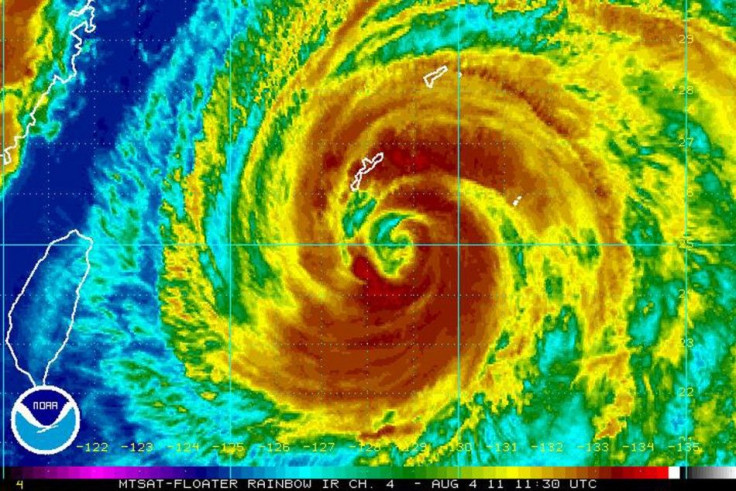Severe Typhoon Approaching China?s Eastern Coast

Parts of China’s eastern coast have been placed on alert as severe typhoon Muifa approaches the Zhejiang and Jiangsu provinces, close to Shanghai.
According to China's Central Meteorological Administration (CMA), winds generated by the typhoon have reached 100 miles per hour, accompanied by waves 36 feet high at sea.
An orange alert – the second-highest such warning -- has been issued to ships and fishing boats in the region. The typhoon is expected to reach shore Saturday evening or Sunday morning.
“Muifa is forecasted to move west by north at speed of 10 to 15 [kilometers] per hour and enter southeastern East China Sea… tomorrow night with [increasing] intensity,” CMA stated.
“Then it will approach the [coastal] areas from northern Zhejiang to southern Jiangsu. It is likely to land in the coastal areas from Taizhou in Zhejiang to Qidong in Jiangsu from night of Aug. 6 to day of Aug. 7 and also likely to skim this coast northward.”
Seven thousand fishing vessels in the port of Zhou Shan have returned to harbor and plans are underway to evacuate coastal regions.
Chinese air transport will likely face disruptions.
According to Agence France Presse, China Southern Airlines has already cancelled more than 140 flights to eastern China from Saturday afternoon; while China Eastern Airlines warned of a "severe impact" on its services.
Heavy rains created by Muifa have already led to flight cancellations and energy shortages in Japan’s Okinawa island, directly east of the Chinese coast.
Shanghai officials are expected to inspect its high-speed rail networks as the city braces for the typhoon. The city has warned that some rail service may be disrupted or shut down depending on the severity of the storm.
A deadly high-speed rail accident two weeks ago killed dozens of people.
In 2005, Typhoon Matsa killed seven people in Shanghai.
© Copyright IBTimes 2024. All rights reserved.











